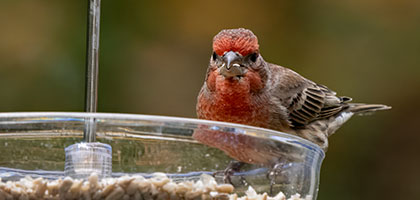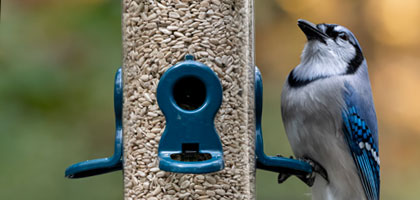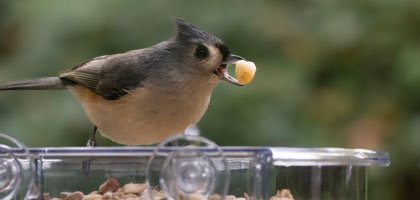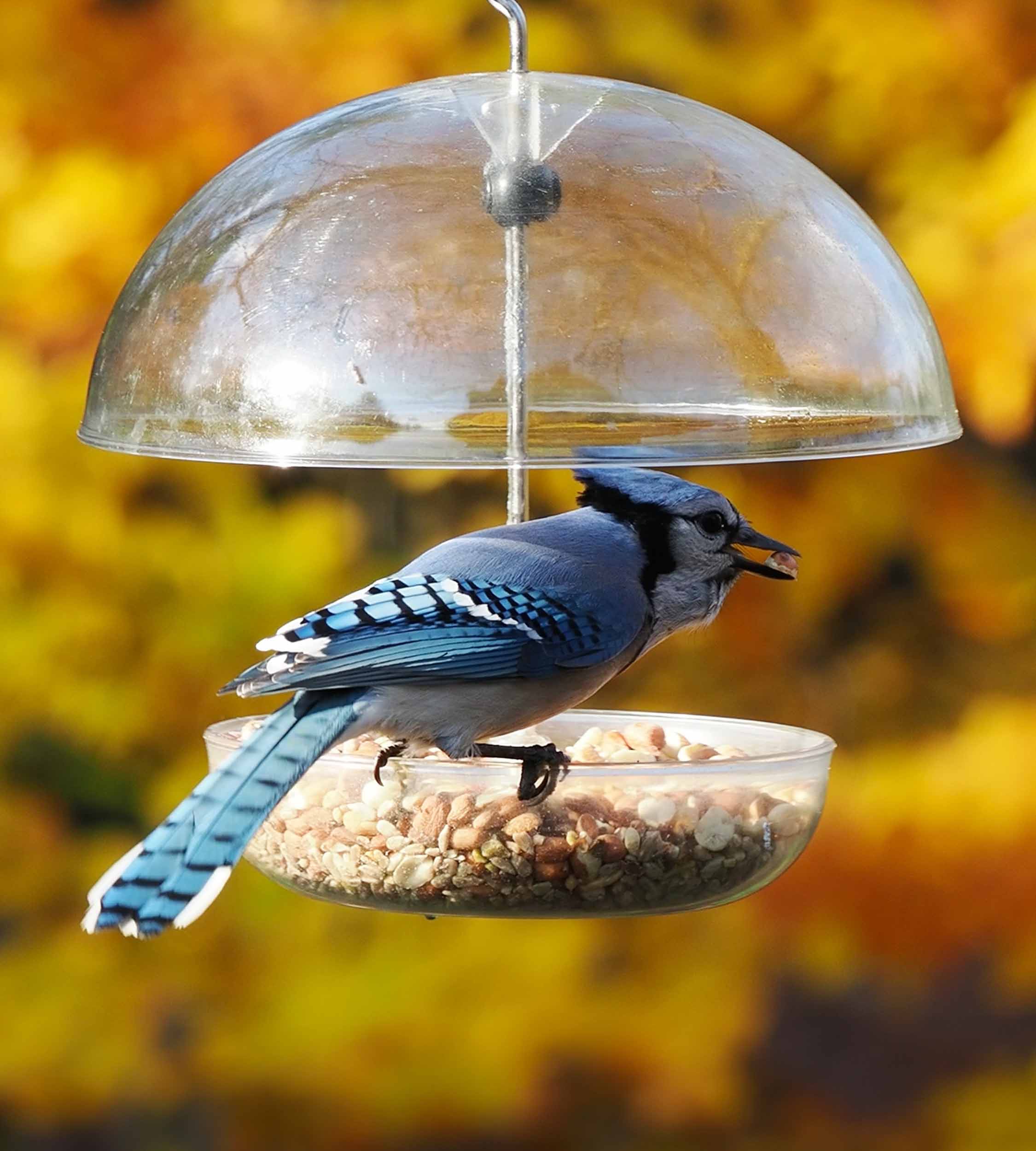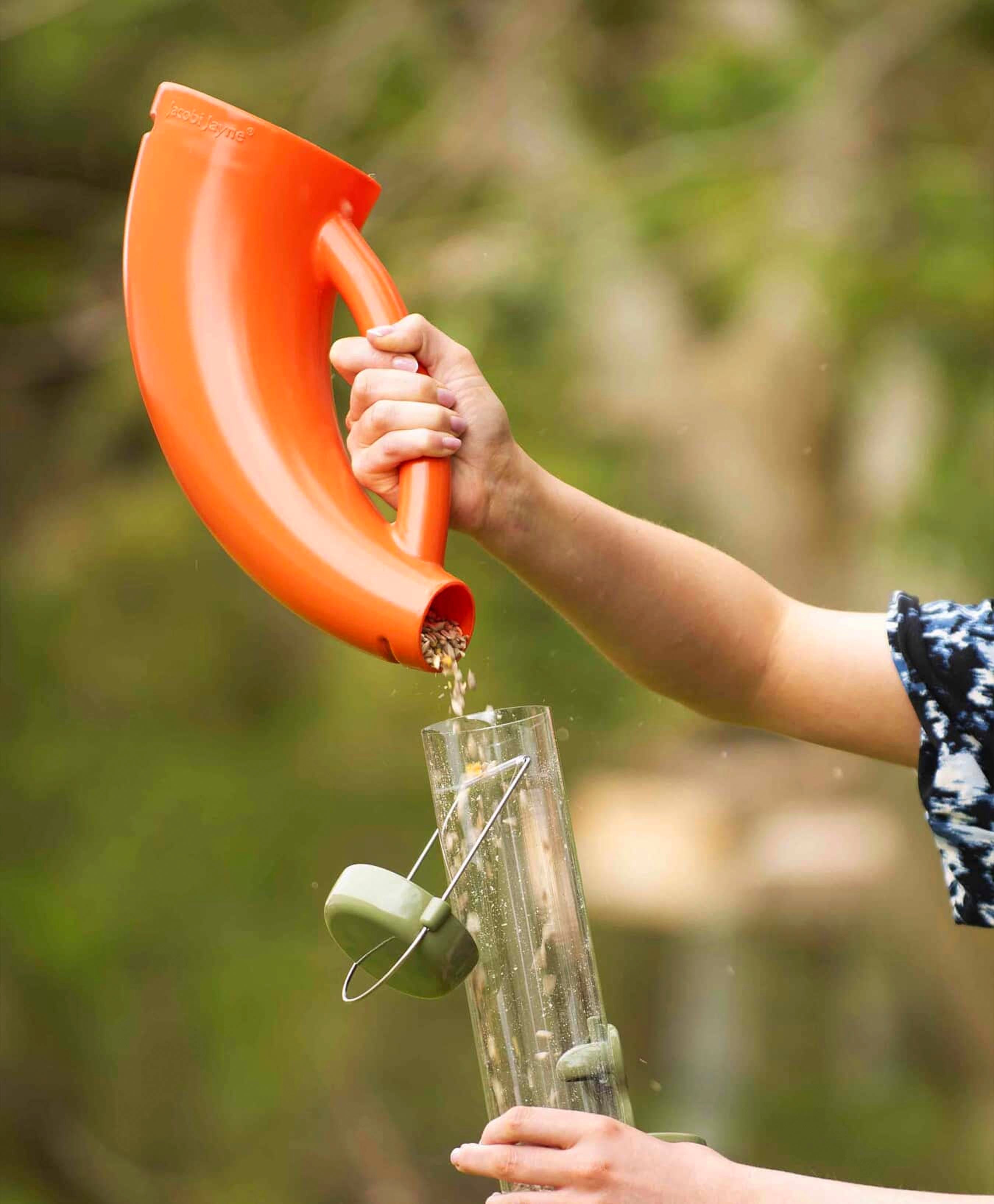Bird feeding is a rewarding hobby. It brings joy to bird watchers and provides sustenance to backyard birds.
However, it’s not as simple as just tossing out some seeds. Understanding the shelf life of bird food is crucial.
Different types of bird food have varying shelf lives. Knowing how to store them properly can prevent spoilage and ensure the health of the birds.
In this guide, we’ll delve into the shelf life of various bird foods. We’ll also discuss proper storage methods and signs of spoilage to help you maintain a fresh and nutritious bird feeder.
The Importance of Knowing Bird Food Shelf Life
Understanding the shelf life of bird food plays a vital role in bird feeding. Fresh food is more nutritious and appealing to birds. Spoiled or expired bird food can deter birds and affect their health adversely.
Bird food shelf life knowledge helps prevent food waste. It ensures that you provide high-quality sustenance to your backyard visitors. Properly managing bird food can also save you money in the long run. It reduces the risk of discarding large quantities of spoiled food. Prioritizing freshness can attract a wider variety of bird species to your feeders.
Types of Bird Food and Their Shelf Lives
Different bird foods have varying shelf lives. Knowing these differences helps maintain food quality. Common bird food types include suet, seeds, nuts, fresh fruits, and specialty feeds.
Suet Cakes and Balls: These are made of fat and spoil faster. Proper storage can help extend their life.
Bird Seed and Seed Mixes: Generally have a longer shelf life when kept dry.
Peanuts and Nuts: Vulnerable to mold, they need careful storage to ensure safety.
Fresh Fruit and Mealworms: Highly perishable, needing frequent replacement.
Nyjer Seed and Specialty Feeds: Can spoil quickly if not stored correctly.
Proper knowledge of these types ensures your feeding efforts are effective and safe.
Suet Cakes and Balls
Suet cakes and balls are popular with woodpeckers and other bird species. They are energy-rich but prone to spoilage due to their high-fat content.
Storing them in cool conditions can prevent them from melting and spoiling. Keep an eye for rancid smells, a definite sign of spoilage.
Bird Seed and Seed Mixes
Bird seed and seed mixes are staples for many bird feeders. They can last several months if stored properly, usually in a dry, cool place.
These mixes cater to a variety of birds like cardinals and chickadees. Regularly check seeds for mold and clumping, signs that they are no longer safe.
Peanuts and Nuts
Peanuts and nuts are a favorite among bluejays and other large birds. However, they can go rancid if exposed to moisture or heat.
Keep them in airtight containers to reduce the risk of mold, which can be toxic to birds. Inspect them frequently before placing them in feeders.
Fresh Fruit and Mealworms
Fresh fruit attracts orioles and some other birds. However, it can spoil quickly and should be replaced daily.
Mealworms provide protein for insect-eating birds like bluebirds but must be kept fresh. Alternatively, you can use dried mealworms to avoid spoilage issues.
Nyjer Seed and Specialty Feeds
Nyjer seed, popular with finches, can spoil if not stored correctly. They require special feeders to minimize waste.
Specialty feeds often cater to specific bird species and need care in handling. Keep them dry and cool to extend their shelf life.
Signs of Spoilage in Bird Food
Recognizing spoilage is crucial to maintain bird health. Spoiled bird food loses its nutritional value and can harm birds. Several signs indicate when food is no longer safe for consumption.
Common signs of spoilage include:
• Mold growth, which can be dangerous to birds.
• Off-odor, indicating rancidity, especially in fatty foods.
• Clumping of seeds, often due to moisture exposure.
• Insect infestation, such as moths or beetles.
Birds may refuse spoiled food, but relying on them to indicate spoilage isn’t wise. Regularly inspecting food for these signs ensures you’re providing fresh, safe bird food. Promptly replacing spoiled items helps maintain a healthy feeding environment.
Proper Storage Solutions for Bird Food
Proper storage is key to extending the shelf life of bird food. Without it, even the freshest food can spoil quickly. Adopting effective storage methods ensures your bird food remains safe and nutritious.
Key storage tips include:
• Using airtight containers to prevent moisture and pest access.
• Storing bird food in cool, dry areas to avoid spoilage.
• Monitoring temperature and humidity regularly.
• Rotating stock to use older food first, minimizing waste.
Implementing these solutions helps preserve the quality of bird food. Not only does this protect bird health, but it also reduces waste and costs. Ensuring proper storage is a vital practice for all bird enthusiasts.
Airtight Containers and Cool, Dry Places
Airtight containers are essential for keeping bird food fresh. They protect food from moisture and pests. Investing in quality containers pays off by preserving food quality.
Cool, dry storage locations are ideal. Avoid areas with high humidity or direct sunlight. This simple practice helps extend the life of bird seeds and mixes.
The Role of Refrigeration
Refrigeration can be beneficial for certain bird foods. Items like suet and mealworms can last longer when kept cold. Refrigeration helps in maintaining freshness and nutritional value.
Not all bird food needs refrigeration. Pay attention to labels or manufacturer guidelines. Refrigeration can prevent rancidity and spoilage in high-fat or protein-rich foods.
How to Manage Bird Food Inventory
Managing your bird food inventory is crucial for preventing waste. It also ensures the food you provide remains fresh and nutritious. Proper inventory practices can save both time and money while maintaining the health of visiting birds.
Smart purchasing decisions start with buying what you can use before it spoils. This reduces the chance of food going bad and minimizes waste. Monitoring the condition of your stock is equally important for ensuring the food stays fresh.
Regularly checking for spoilage signs, like mold or clumping, aids in maintaining quality. Having a system to use older food first helps in keeping your inventory fresh and cycling smoothly.
Buying in Appropriate Quantities
Purchasing bird food in the right amounts is key to preventing spoilage. Avoid buying in bulk unless you’re sure it will be used promptly. Smaller, frequent purchases can ensure fresher food supplies for your backyard visitors.
Rotating Stock and Monitoring Freshness
To maintain freshness, adopt a “first in, first out” system for your bird food. This means using older stock first, keeping new supplies at the back. Regular freshness checks can help identify food that has changed texture or odor.
The Impact of Feeder Type on Food Freshness
The type of bird feeder you choose can directly affect the freshness of the bird food. Some feeders protect better against the elements, keeping food fresh longer. Selecting the right feeder can greatly enhance the bird feeding experience.
Feeder design can also influence how frequently food needs to be replenished. Weather-resistant feeders help in reducing moisture exposure, thus prolonging the shelf life of the contents. Considering these factors when choosing feeders is essential for maintaining quality bird feeding.
Material and design choices can also minimize contamination from pests. Opt for feeders designed with bird health and food longevity in mind. This ensures your backyard birds receive nutritious meals.
Large vs. Small Bird Feeders
Large bird feeders can accommodate more food but may increase the risk of spoilage if not consumed rapidly. Small feeders can be a better option for maintaining food freshness since they prompt more frequent refills.
Specialty Feeders for Suet, Nyjer, and Mealworms
Specialty feeders are uniquely tailored to protect specific types of bird food, such as suet, nyjer, and mealworms. These feeders often prevent clumping or spoilage, making them ideal for keeping food fresh. Tailored designs support species-specific feeding, enhancing bird visitation.
The Consequences of Feeding Birds Spoiled Food
Feeding birds spoiled food poses several risks to their health. Moldy or rancid food can lead to serious bacterial and fungal infections. Such infections can be detrimental, especially for weaker birds.
Spoiled food also affects the trust birds place in their feeding environment. If they encounter poor quality food, they may avoid returning to the feeder. This not only impacts bird health but also reduces the diversity and number of visiting birds.
Beyond the immediate health risks, spoiled food can attract pests. Rodents and insects are drawn to decaying matter, which can further contaminate feeding stations. Maintaining food freshness is crucial in preventing these unwanted issues.
Best Practices for Bird Feeding Hygiene
Maintaining hygiene in bird feeding areas is essential. Regularly clean feeders to prevent the spread of diseases among birds. Use warm water and mild soap to remove residue and potential contaminants.
It’s crucial to clean up any spilled or uneaten food around the feeder area. Debris and waste can attract pests and increase the risk of mold formation. Consistent cleaning helps maintain a healthy feeding environment.
Inspect feeders frequently for signs of wear. Damaged feeders can harbor bacteria and mold, making thorough inspections important. Repair or replace feeders as needed to ensure a safe feeding habitat for birds.
Conclusion: Maintaining a Healthy Diet for Backyard Birds
Understanding bird food shelf life ensures that we provide the best for backyard birds. Proper storage, timely replacement, and awareness of spoilage signs help maintain food quality.
By being mindful of these practices, you support the health and vitality of birds. A healthy diet not only attracts diverse bird species but also contributes to their well-being year-round.
